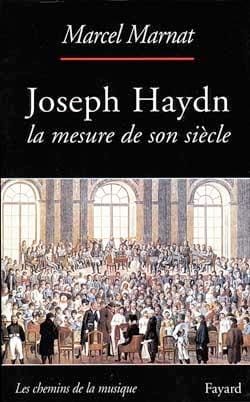Having lived in the middle of the Age of Enlightenment and, in his long life, approached in the early years of continental romanticism, Joseph Haydn (usually hidden between the austerity of Bach and the pathos that is attributed to Mozart) seems the ideal incarnation an artist who, attentive to the fevers of his age, to incorporate them into his art, without demonstration or pose.
More literary than musicological, this book, divided into about twenty ethical or aesthetic themes, offers a perspective of the entire century from Haydn's point of view . The latter, then, emerged as one of the major and most active minds of his time, as one of the most obvious measures of his century . Thus are revalued, according to a constantly exemplary work, as well the life of court as the survival of the faith, the direction of the journeys or professorship, the influence of the masonry and the mirages of the French Revolution, without neglecting the evolution of singing and publishing, the ensemble constantly highlighting the predominantly European dimension of a composer fully conscious of being celebrated from Cadiz to London, from Naples to St. Petersburg.
Marcel Marnat born in 1933, author of books on Musorgsky, Michelangelo, Vivaldi, was, from 1978 to 1992, one of the leaders of the programs of France-Music. He has since published a collection of memories where Manuel Rosenthal tells Ravel, as well as an essay on Stravinsky.
 |